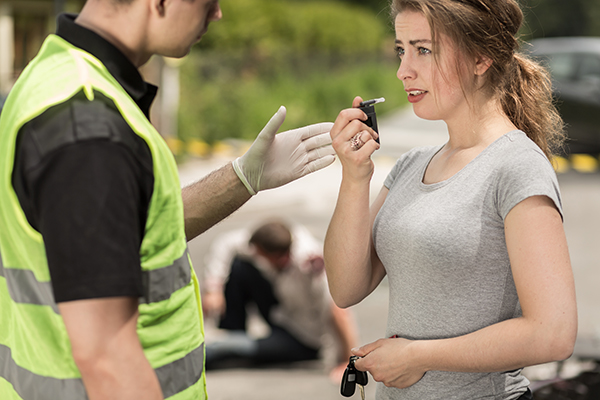It is generally accepted that departments are permitted to require its police officers to possess a valid Illinois driver’s license as a condition of employment. What happens when a police officer has his license suspended for refusing a breathalyzer test while off-duty? In the past, the officer could simply request a restricted driving permit (RDP) which allowed an individual the ability to drive during working hours. However, RDP’s have essentially been replaced by the Breath Alcohol Ignition Interlock Device (BAIID). Obviously this device could not be installed in police cars as it would look awfully strange to the public if one were to see a police officer blowing into a tube prior to starting his squad. Accordingly, the only option is to request an RDP. The Secretary of State will normally issue an RDP; however it requires that the employer verify the driver’s employment.
What happens when a Police Department refuses to comply with the Secretary of State and verify the driver’s employment? In short, the RDP is denied and the officer will be placed into a no pay status.
All Illinois drivers are given the statutory right to choose between submitting to a chemical test and refusing to submit to such tests. However, if a refusal results in someone being denied the ability to work, the interest of a pay check must be weighed against the exercising of a constitutionally protected right. Police officers “are not relegated to a watered-down version of Constitutional rights. (Garrity at 385.) Police officers are not “required to tolerate invasions of their freedoms which are not reasonably related to the special considerations arising from the relationship of employment. Grow v. City of Milwaukee, 84 F. Supp. 2d 990 (E.D. Wis., 2000). 625 ILCS 5/11-501.1 states in pertinent part:
(c) A person requested to submit to a test as provided above (breath test) shall be warned by the law enforcement officer requesting the test that a refusal to submit to the test will result in the statutory summary suspension of the person’s privilege to operate a motor vehicle.
Recently, some departments have placed officers on an involuntary leave of absence because of their inability to obtain an RDP. This despite the fact that the department obstructed the process in obtaining the RDP. If the leave of absence expires and the officer has yet to obtain a valid license, they are effectively discharged. This hardly seems fair yet it has become a reality in some areas.
Departments should act in good faith when dealing with employees faced with such a circumstance. It was certainly not the intent of the Legislature to punish people who refuse chemical testing by forcing them to lose their jobs. The “unclean hands” doctrine precludes a party who is guilty of misconduct, fraud, or bad faith connected to the matter being litigated from obtaining relief in a court of equity. Peoria Police Sergeants v. Peoria Bd. of Fire & Police Comm’rs, 215 Ill. App. 3d 278, 283 (3d Dist. 1991). The unclean hands doctrine is available to both plaintiffs and defendants. Although the doctrine is usually utilized as an affirmative defense by defendants, plaintiffs may use the doctrine to support claims made against defendants.
Officers who find themselves in a situation described above may be able to assert the unclean hands doctrine to preclude its employer from asserting that the officer failed to return to work upon expiration of a leave; since the Department’s bad faith conduct ultimately caused the officer from returning to work. All persons are entitled to due process, including police officers.


